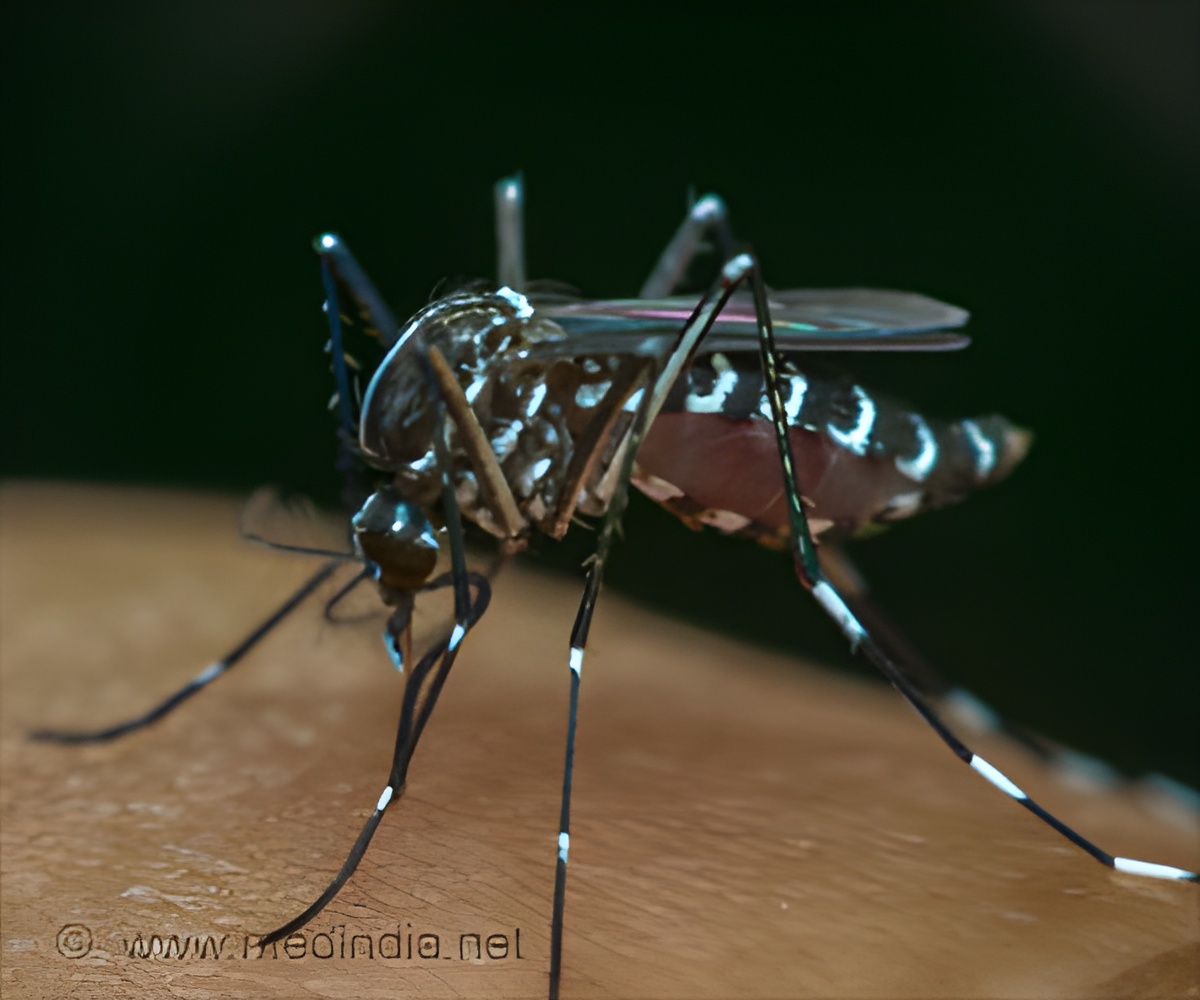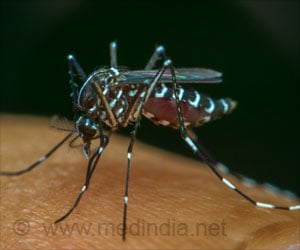Female asian tiger mosquitoes collected in Brazil had encountered Zika and passed fragments of the virus to their offspring.

‘Aedes albopictus has a wide range of hosts and has adapted to colder climates. Recently, Zika virus tested positive in these mosquitoes and is of great concern.’





The virus has rapidly spread through the Americas since its initial outbreak in 2015, says Chelsea Smartt, Ph.D., associate professor at the Florida Medical Entomology Laboratory at the University of Florida and lead author on the study. "Our results mean that Aedes albopictus may have a role in Zika virus transmission and should be of concern to public health," Smartt says. "This mosquito is found worldwide, has a wide range of hosts and has adapted to colder climates. The role of this mosquito in Zika virus transmission needs to be assessed."
Smartt and an international team of researchers collected the mosquitoes from homes in Brazil and hatched eggs from those mosquitoes in the lab. Male Ae. albopictus mosquitoes that hatched tested positive for Zika RNA (ribonucleic acid), meaning that females collected in the field had encountered Zika and passed fragments of the virus to their offspring.
Whether that means Ae. albopictus can "vertically transmit" live Zika virus to its offspring is still unclear. "Detecting Zika RNA fragments without finding live Zika virus suggests that either the female parent was not itself infected with live Zika virus or it was not able to transfer live Zika virus to her eggs," Smartt says.
Thus far, the yellow fever mosquito (Aedes aegypti) is the species known to be the primary transmitter of Zika to humans, though researchers suspect other species may be involved. However, Smartt says "extensive research still needs to be done" to confirm whether the Asian tiger mosquito is also a culprit.
Advertisement
Advertisement











